QuestionI live in Las Vegas and have a 4000 gallon koi pond in my back yard. The pond is well tended and healthy. I have 3 sliders, two females one male. over the last four years they have existed relatively harmonious. One female and the male have bonded, the other female wants nothing to do with the male. This last summer the bonded female laid eggs. When the babies hatched and about thirty of them they of course beelined to the pond. Only to be killed. Everyone of them had their heads and half their shells bit off!! I'm pretty sure it was the loner female that did it. I was, needless to say mortified. I have tried to find some behavioral information on this situation and cannot find any referenced. I did manage to rescue two babies. My question is, have you ever heard of such a thing? Why would this happen? Thanking you in advance for your response. Cynthia G.
AnswerHi Cynthia,
First of all, I strongly recommend that you destroy most eggs that are produced. RES are the #1 unwanted turtle in rescues, and finding good homes for offspring (and as you know, they are prolific breeders) will be extremely difficult. There just aren't enough good homes out there. I can't tell you how often I hear about RES that are neglected or dumped, and the ones that are released wreak havoc on native turtle populations. Sad to say, it's now considered an invasive species worldwide. If you want to raise a few of the babies, you can remove the eggs and incubate them (but they'll need to be raised separately until they're big enough to be with the adults), but over time you are going to have literally hundreds of hatchlings if you incubate them all. A female can produce several clutches a year, with numerous eggs per clutch.
It's possible that the female killed the babies, but it could also be due to another predator, or the other turtles, for that matter. Turtles aren't bonded to their offspring. Hatchlings are very vulnerable to everything from cats to birds, so unless you actually see something, it's pretty hard to say what's eating them. Raccoons and opossums are common in most residential areas, and extremely dangerous to hatchlings, for example. In any case, if it's due to one (or all) of the adult turtles, it's not vindictive behavior. If it moves, they'll often try to eat it.

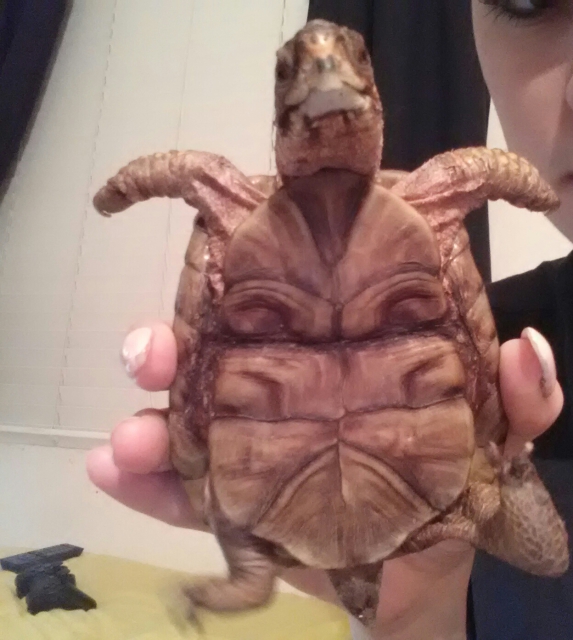 What kind of turtle I have
Question
Honey 1 Honey 2
Hi, I have had th
What kind of turtle I have
Question
Honey 1 Honey 2
Hi, I have had th
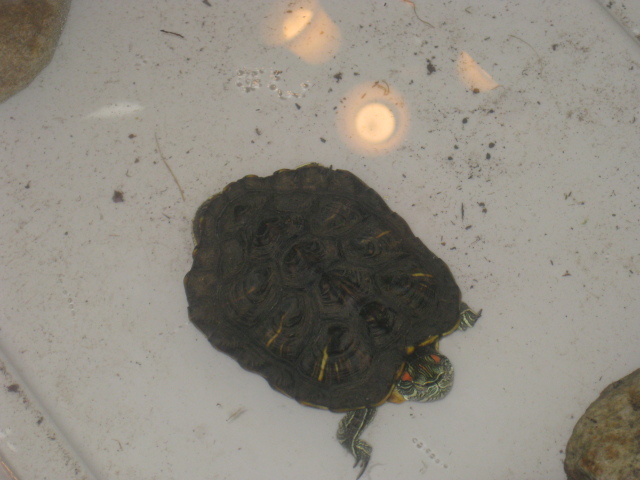 Possible RES Found
Question
Turtle
Hello!
One of my neighbo
Possible RES Found
Question
Turtle
Hello!
One of my neighbo
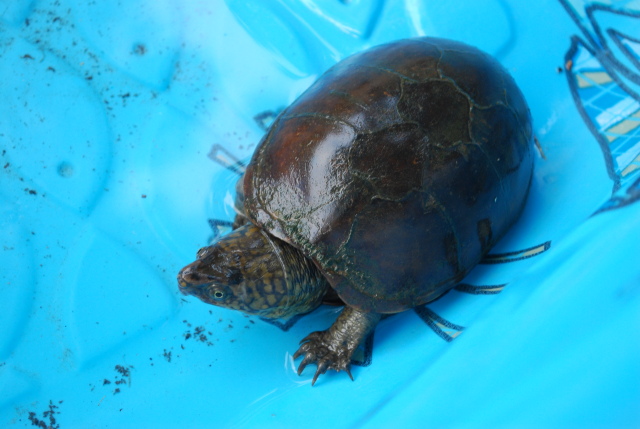 What is my turtle?
QuestionNew Turtle
QUESTION: I have a turtle tha
What is my turtle?
QuestionNew Turtle
QUESTION: I have a turtle tha
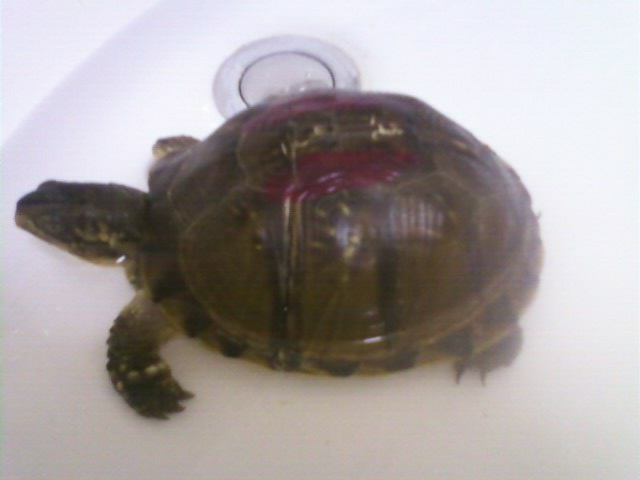 green turtle
Question
THIS TURTLE WAS A GIVE
What kind of turtle is
green turtle
Question
THIS TURTLE WAS A GIVE
What kind of turtle is
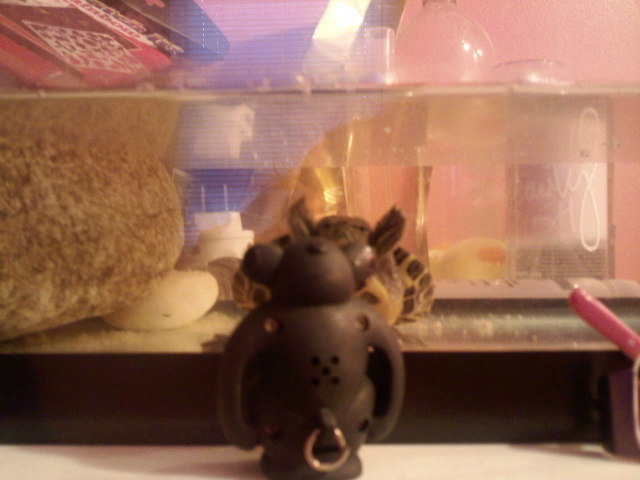 tuff turtle
Question
Ichabod
hi, my red ear is a little over a year
tuff turtle
Question
Ichabod
hi, my red ear is a little over a year